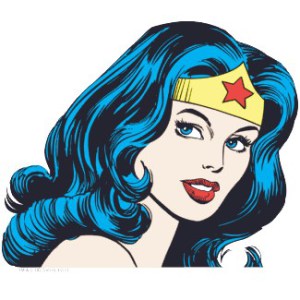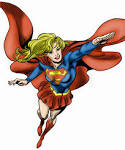
by Colleen Chatterton
“Think of all the wonders we can do” emblazoned across a Gal Gadot-like drawing of Wonder Woman has become the symbol for a new U.N. campaign to empower women and girls.
At a UN ceremony held October 21, 2016, celebrating the 75th anniversary of the creation of the female superhero, Wonder Woman was made the first honorary U.N. Ambassador for the Empowerment of Women and Girls.
Gal Gadot and Lynda Carter, two actresses who have portrayed Wonder Woman on TV and screen, spoke at the ceremony:
“In some magical and mystical way, there lies within each of us Wonder Woman,” Carter said. “She is real. She lives and she breathes. . . she lives in the stories that these women tell me, day in and day out. I see it in the letters and in the stories. I read it on social media. I see it in the tears that fall from the eyes of the women who say it saved them from some awful thing that they endured — because they saw that they could do something great.”
“To achieve gender equality and empower all women and girls” is goal number five on a list of 17 sustainable development goals the U.N. has created as a framework for the future of global development.
The U.N., DC comics, and Warner Bros. plan to use Wonder Woman’s image to bring public awareness to gender-based issues around the world.
The purpose of the Wonder Woman campaign is to show what we can collectively achieve when women and girls are fully empowered.
In the words of a U.N. mandate, the campaign will feature examples of women and girls “who have made and are making a difference every day by overcoming barriers and beating the odds to reach their goals.”
“The campaign is about women and girls everywhere, who are wonder women in their own right, and the men and boys who support their struggle for gender equality, bringing about positive change in their homes, workplace, communities, countries and the world together.”
Below are links to recent articles related to the UN event:
Stand Up for the Empowerment of Women and Girls Everywhere
From the UN website
Lynda Carter, Gal Gadot reflect on 75 Years of Wonder Woman at the UN
From Entertainment Weekly
Is Wonder Woman Qualified to be a UN Ambassador?
From BBC News
Is Wonder Woman Suited to be a U.N. Ambassador?
From NPR “All Things Considered”
At 75, Wonder Woman Lassoes in A New Generation With an Ageless Fight
From NPR “Weekend Edition Sunday”
Wonder Woman Named Honorary U.N. Ambassador For Gender Equality
From NPR


